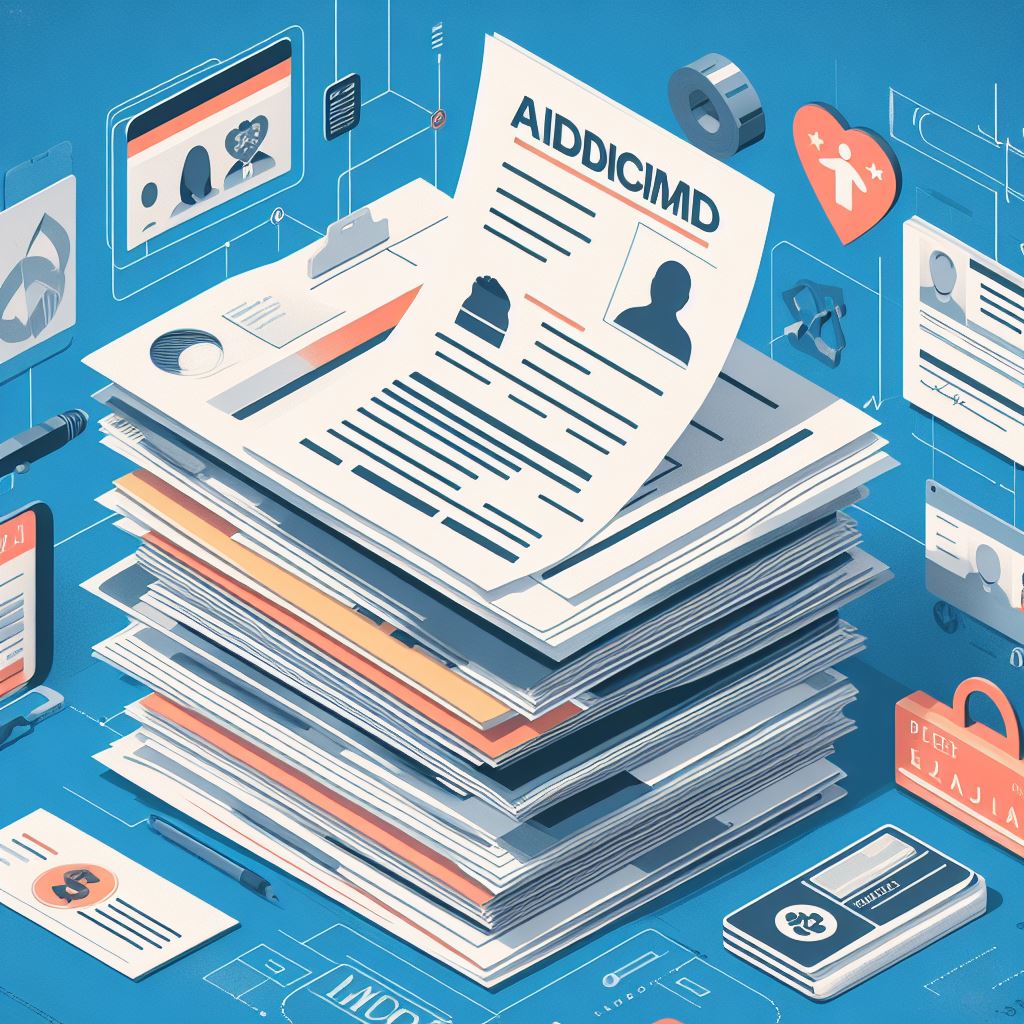Key Documents Needed for Medicaid Application

Are you ready to take the next step in applying for Medicaid? Before you dive into the process, it’s important to gather the key documents that will make your application a success.
From proof of identity and income to residency and citizenship, these documents will help you navigate the application smoothly. By having all the necessary paperwork in hand, you’ll be one step closer to accessing the healthcare coverage you need.
Let’s explore the key documents needed for your Medicaid application.
Key Takeaways
- Proof of identity and citizenship, such as a government-issued ID or passport, social security card, and proof of immigration status, are required for the Medicaid application.
- Proof of income is necessary and can include pay stubs, bank statements, tax returns, and any other evidence of income, including non-taxable income.
- Proof of residency is important and may include utility bills, lease agreements, voter registration cards, or mail from a government agency.
- Medical records, prescriptions, and documents showing medical expenses should be included in the application to accurately determine Medicaid assistance level.
Proof of Identity
To prove your identity when applying for Medicaid, you’ll need to provide specific documents. These documents are crucial in establishing your eligibility and ensuring that you receive the healthcare benefits you deserve.
The first document you’ll need is a government-issued identification card, such as a driver’s license or a passport. This card serves as a reliable proof of your identity and validates your personal information.
In addition to this, you’ll also need to provide your Social Security card. This card verifies your unique identification number, which is essential for processing your Medicaid application.
Furthermore, if you’re a non-U.S. citizen, you’ll need to provide proof of your immigration status, such as a valid visa or a Permanent Resident Card. This is necessary to determine your eligibility for Medicaid benefits.
Lastly, it’s important to note that all the documents you provide must be current and not expired. By submitting these specific documents, you can confidently prove your identity and move forward with your Medicaid application process.
Proof of Income
Gather the necessary documents to demonstrate your income when applying for Medicaid. Providing proof of income is crucial to determining your eligibility for Medicaid benefits.
You’ll need to gather documents such as pay stubs, bank statements, tax returns, and any other evidence that shows your income. Make sure to include all sources of income, including wages, self-employment earnings, rental income, and any other forms of monetary support.
If you receive any non-taxable income, such as Social Security benefits or disability payments, be sure to include documentation for those as well. It’s important to provide accurate and up-to-date information to ensure a smooth application process.
Once you have gathered all the necessary documents, you can move on to the next step of the application process, which is providing proof of residency.
Proof of Residency
Once you have provided proof of income, the next step in the Medicaid application process is to demonstrate your residency. Medicaid is a state-administered program, so each state has its own requirements for proving residency. Generally, you will need to provide documents that show you live in the state where you are applying for Medicaid.
To help you understand what documents are commonly accepted as proof of residency, here is a table outlining examples for five different states:
| State | Proof of Residency |
|---|---|
| California | Utility bill, lease agreement, or voter registration card |
| New York | Driver’s license, utility bill, or lease agreement |
| Texas | Lease agreement, utility bill, or mail from a government agency |
| Florida | Voter registration card, utility bill, or bank statement |
| Pennsylvania | Lease agreement, utility bill, or pay stub |
Remember, these are just examples, and the specific documents required may vary depending on your state. It’s important to check with your state’s Medicaid office to ensure you have the correct documentation.
Providing proof of residency is crucial to establish that you are eligible for Medicaid in your state. Make sure to gather the necessary documents and submit them along with your application to avoid any delays or complications.
Proof of Citizenship
After providing proof of residency, the next step in the Medicaid application process is to provide documentation to prove your citizenship. This is an important requirement to ensure that only U.S. citizens or qualified immigrants can receive Medicaid benefits.
To prove your citizenship, you’ll need to submit one of the following documents: a U.S. passport, a Certificate of Naturalization, a Certificate of Citizenship, or a U.S. birth certificate. It’s important to note that photocopies or notarized copies of these documents are generally accepted.
However, if you’re unable to obtain any of these documents, you may be required to provide other evidence of your citizenship, such as early school records, hospital records, or religious records that show your place of birth.
It’s advisable to contact your Medicaid office or visit their website to get a comprehensive list of acceptable documents for proof of citizenship.
Medical Records and Expenses
To continue with the Medicaid application process, you’ll need to provide your medical records and details of your expenses. These documents are crucial in determining your eligibility for Medicaid and the level of assistance you may receive. Here are three key items you should include when submitting your medical records and expenses:
- Medical history: Include all relevant medical records, such as doctor’s notes, diagnoses, and treatment plans. This information helps establish your medical condition and the need for Medicaid coverage.
- Prescription medications: Provide a list of all prescription medications you currently take, including the dosage and frequency. Medicaid considers this information when evaluating your healthcare needs and determining coverage.
- Proof of expenses: Gather receipts and documents that show your medical expenses, such as bills, invoices, and insurance statements. These expenses may include doctor visits, hospital stays, medical equipment, and prescription costs. Providing accurate and up-to-date information about your medical expenses is crucial for determining the level of Medicaid assistance you may receive.
Frequently Asked Questions
Can I Apply for Medicaid if I Don’t Have Any Proof of Income?
You can still apply for Medicaid even if you don’t have proof of income. However, it is important to provide as much information as possible to support your application and eligibility.
Are There Any Exceptions or Special Considerations for Individuals Who Are Homeless or Do Not Have a Permanent Address?
You may be eligible for Medicaid even if you’re homeless or lack a permanent address. There are exceptions and special considerations in place to help individuals in your situation.
How Long Does It Typically Take to Receive a Decision on My Medicaid Application?
It typically takes a few weeks to receive a decision on your Medicaid application. The exact timeline can vary depending on your state and the complexity of your case.
Can I Submit My Medicaid Application Online, or Do I Have to Apply in Person?
You can submit your Medicaid application online or in person. It’s up to you. Both options are available and it’s a matter of personal preference.
Are There Any Specific Requirements for the Types of Medical Records or Expenses That Need to Be Provided as Part of the Medicaid Application?
You need to provide specific medical records and expenses as part of your Medicaid application. These documents are required to determine your eligibility for the program.



